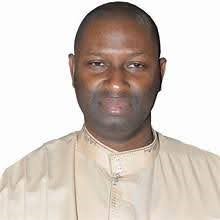By Kebba AF Touray
The Ministry for Finance and Economic Affairs (MoFEA) through its Permanent Secretary AbdoulieJallow and BaboucarrJobe, Deputy Finance Ministry, appeared and testified before the Joint Committee on Public Enterprise Committee (PEC) and Finance and Public Accounts Committee (FPAC).
The officials were asked to explain to the committee when the operational mechanisms of the depot changed, they informed the committee that in 2017 to 2018, they decided to liberalize the fuel market.
This, they said, was when the government was trying to get away with the Bazzi regime.
“So, in doing that, we allow the operators to be able to import fuel, and in allowing them to import fuel, what we mentioned was that you have to obtain a license, and this would give you the opportunity for you to import fuel,” they told the committee.
In giving them the license, they mentioned that there was a license fee and an obligation to have an importation plan before they started importing.
They said: “We also made it clear that because of the porous nature of the borders, they are confined to import via vessel. The only time we allow fuel import over land is through emergencies, and that is exactly what has been happening up to date”.
The officials from the Ministry added that one would only see the importation of fuel when there is an emergency, or shortage in terms of vessels not coming in, saying, “That is how we have been operating, but as time has passed, you would realize that the cost of bringing product has actually been exorbitant”.
During the former regime, they said the importation of petroleum products, was monopolized by MuhammedBazzi, who was the only authorized importer of petroleum into the country.
“Later, a decision was taken (in the former regime) that the importation of petroleum products should be liberalized to allow the importation of petroleum products by other market players. So, this was the taken, and now we said that if we have to allow other players, we have to come up with a policy on the importation of petroleum products,” they told the committee.
They explained that to bring down or stabilize the prices of the petroleum they sell in the country, the volume of any intending importer matters a lot, “because if you bring in small quantity or volume, it is going affect the pump price”.
Asked whether traders need a license to dump their fuel at the depot, or operate through an OMC who has a license, they replied that the dumping of product is recent, and no trader will dump fuel at the depot without an OMC requesting a product.
They reported that even before doing that, one has to seek a request for ullage at the depot, which shows the need for an importation plan to be able to determine the quantity that a trader would bring, and the rationale is to ensure that at any point in time in the country there would be enough stock.
They further told the committee that the policies have now translated into a licensing regime.
The committee asked the officials to state if they had ever heard of Apogee FZC, according to the officials they heard about it through correspondences they sent to the Ministry of Finance.





















